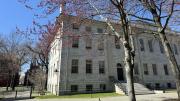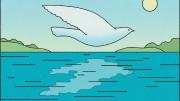Nazi germany's occupation of parts of Russia had lasting and quantifiable effects, Florence professor of government James A. Robinson and his coauthors conclude in a working paper published in June by the National Bureau of Economic Research.
Working with Daron Acemoglu of MIT and Tarek A. Hassan of the University of Chicago's Booth School of Business, Robinson spent five years analyzing various data, including census figures and economic measures. The researchers found that the 11 Russian oblasts, or administrative regions, where the Jewish population declined the most—39 percent, on average—between 1939 and 1959 now report per capita GDP figures well below the national average, and that those oblasts showed greater support for preserving the Soviet Union in 1991. These same districts have been more likely to favor Communist candidates since the end of the Soviet Union.
Although Jews were only a small minority of the Soviet population, they played a critical economic role in their societies, Robinson explains. "The Holocaust wiped out many of the most educated and productive people in western Russia," he states in a press release from the Harvard Public Affairs and Communications office. "It was a major shock to the social structure of the invaded regions, dramatically reducing the size of the Russian middle class."
Around one million Soviet Jews are believed to have died in the Holocaust.
For more on Robinson's quantitative approach to studying history, read this magazine's Right Now article "History Quantified," a report on Natural Experiments of History, his book with Jared Diamond ’58.








